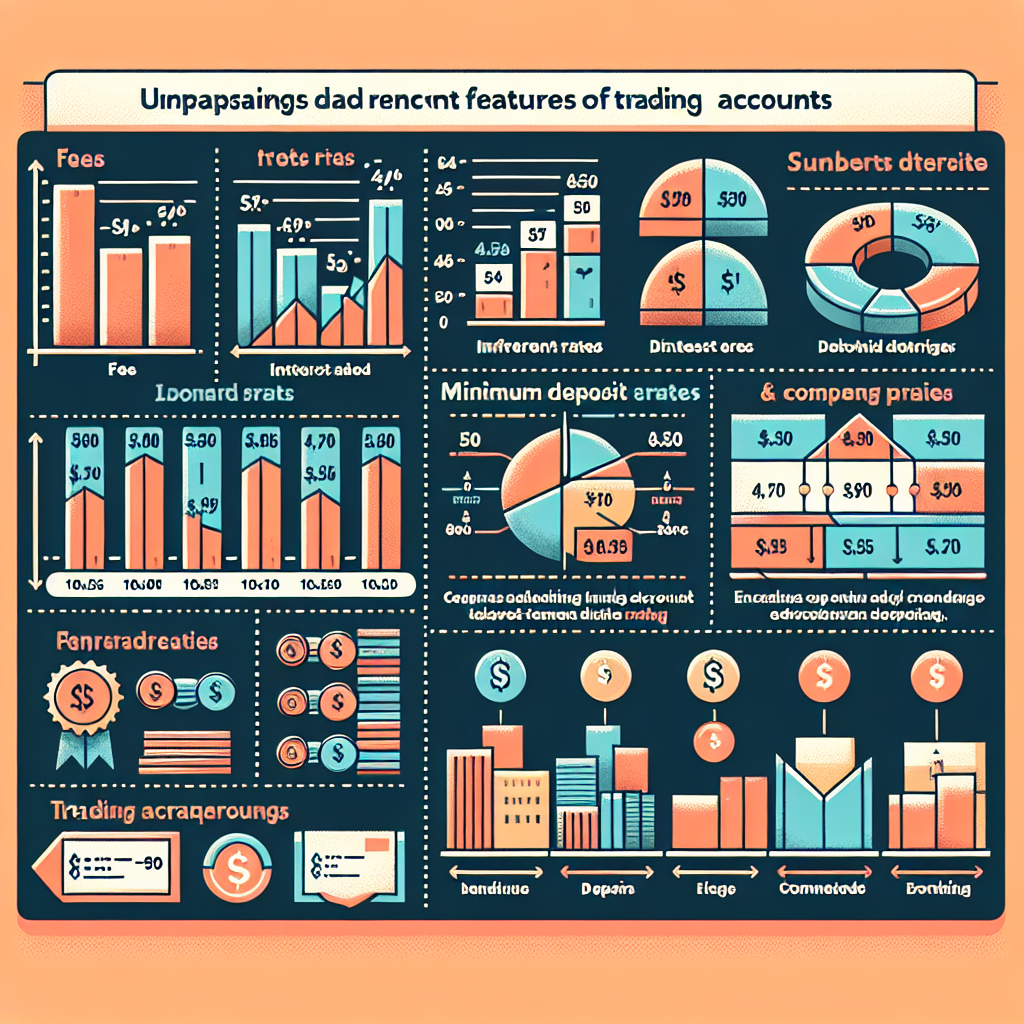Introduction
In the world of investing, the process of trading has become increasingly accessible due to the proliferation of online trading platforms. These platforms provide an array of trading account features that cater to different types of investors. It is important for investors to understand the features of different trading accounts in order to make informed decisions about where to invest their money. In this article, we will compare the features of various trading accounts to help you make a more informed decision.
Account Types
Individual Trading Accounts
Individual trading accounts are the most common type of trading account. They are easy to set up and offer a wide range of investment options. However, they do not offer any tax advantages and the account holder is solely responsible for managing the account.
Retirement Accounts
Retirement accounts such as IRAs and 401(k)s offer tax advantages for long-term investors. The tax benefits can significantly boost your returns over time. However, these accounts have restrictions on withdrawals before a certain age.
Margin Accounts
Margin accounts allow investors to borrow money to make investments. This can potentially increase returns, but it also increases risk as you could lose more than your initial investment.
Trading Platforms
Different trading accounts offer different trading platforms with varying features. Some offer advanced charting tools, real-time market data, and a variety of order types. Others may be more basic, offering only the essential tools for trading.
Desktop Platforms
Desktop platforms offer a more robust trading experience. They often come with advanced charting tools, real-time market data, and customizable interfaces. However, they may be more complex and harder to navigate for beginners.
Mobile Platforms
Mobile platforms offer the convenience of trading on the go. They are generally easier to use and offer basic trading tools. However, they may lack some of the advanced features found on desktop platforms.
Costs
The cost of using a trading account can vary greatly. Some accounts charge commissions on trades, while others offer commission-free trading. Additionally, some accounts may charge fees for account maintenance, inactivity, or withdrawals.
Customer Service
Customer service is another important factor to consider. Some trading accounts offer 24/7 customer support, while others may only offer support during business hours. The quality of customer service can also vary, with some offering knowledgeable and responsive support, while others may be less helpful.
Conclusion
In conclusion, there are many factors to consider when comparing trading account features. The best trading account for you will depend on your specific needs and investing goals. By understanding the features of different trading accounts, you can make a more informed decision and choose the account that best meets your needs.




